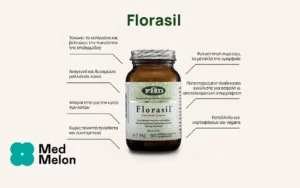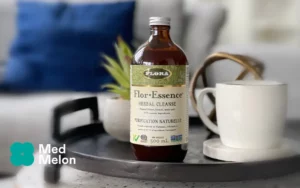Scientific Names of Parsley Seed: Petroselinum crispum (Mill.) A.W. Hill [Fam. Apiaceae]
Forms:
Dried whole parsley seed; Parsley seed oil extract
Traditional Usage:
– Amenorrhea
– Antioxidant
– Appetite Stimulant
– Breastfeeding Problems
– Breathing Disorders
– Childbirth facilitation
– Colic
– Cramps
– Dyspepsia
– Flatulence
– Head Lice (externally)
– Heartburn
– Indigestion
– Increasing Libido (in women)
– Increasing Milk (galactagogue)
– Liver Disorders
– Menstrual Difficulties
– Urinary Tract Conditions
– Urinary Tract Gravel
– Vascular Disorders
Overview:
The seed of parsley, Petroselinum crispum (Mill.) A.W. Hill [Fam. Apiaceae] is commonly used as a food and spice around the world and is known as an appetite and metabolism stimulate in Germany. It, although rarely used as a medicine today, is listed in the German Commission E Monographs for alleviating digestive complaints, as a strong diuretic (though irritation of kidney tissues), for treating urinary tract conditions and preventing urinary tract gravel and for treating menstrual disorders. Parsley seed contains the compound alpha-pinene (up to 50% of the essential oil in some cases) and other compounds that help to loosen bronchial secretions. The seed oil has also been reported to stimulate liver regeneration. The German Pharmacopoeia recognizes parsley seed as a source of essential oils that can effectively treat mild stomach cramps, flatulence and colicky symptoms in the intestinal tract. The seed is recommended as a taste enhancer and counteracts cramps associated with the use of laxatives. Parsley seed tea can also be used to prevent hormonal imbalances and to treat amenorrhea. The tea is also used to stimulate breast milk production and ease breastfeeding difficulties. It is said to increase libido in women and is recommended to facilitate childbirth. The tea is also anti-microbial and antiseptic. Modern herbalists recommend parsley seed for preventing vascular disease and note that the seed, as with other plants in the carrot family, contains 15 compounds that act much like calcium channel blockers. Dr. James Duke, author of The Green Pharmacy, states that vegetarians who eat lots of carrots may have lower levels of vascular disease partly due to these compounds, which are more highly concentrated in it. The essential oil of parsley seed also has strong antioxidant activity. In folk medicine, parsley seed tea was used externally against head lice.
Active Ingredients:
Parsley Seed contains: Approximately 2-7% essential oil with the main compound being the phenyl-propanes apiole, myristicin and 1-allyl-2,3,4,5-tetramethoxybenzene. The oil also contains some terpenoid hydrocarbons including alpha and beta pinene. The seeds also contain approximately 20% fixed oil; organic acids; flavonoids including, largely, apiin; tannins; polysaccharides; and traces of furanocoumarins (bergapten).
Suggested Amount:
The daily dose is 1g of the dried crushed seed. To prepare an infusion: Pour approximately 150ml of boiling water over 1 teaspoonful of crushed and powdered parsley seed and after about 10 minutes pass through a tea strainer. Unless otherwise prescribed, a moderately warm cup of the freshly prepared infusion is drunk between meals two or three times a day.
Drug Interactions:
None known
Contraindications:
Parsley seed is contraindicated during pregnancy and in people suffering from nephritis.
Side Effects:
In normal dosages, none known. Allergic reactions of the skin and mucosa are possible in susceptible persons. Phototoxicity is also possible if excessive amounts are taken, due to the presence of furanocoumarins. In high doses, pure apiol acts to induce abortion and therefore parsley seed is contraindicated during pregnancy. Ingestion of approximately 10g of pure apiole has been reported to cause acute hemolytic anemia, nephrosis, liver dysfunction and thrombocytopenia purpura. If the essential oil is taken in large amounts it can also cause hallucination and a narcotic state. There are many other toxic effects of the pure essential oil and apiol extracts if taken in large amounts including gastrointestinal and kidney irritation, liver damage and cardiac arrhythmias.
References:
Duke, J. 1997: The Green Pharmacy, The Ultimate Compendium of Natural Remedies from the World’s Foremost Authority on Healing and Herbs. pp. 53; 56; 101; 115; 255; 352. Rodale Press.
De Smet, P., Keller, K., Hansel, R. and R. Chandler (eds.) 1993. Adverse Effects of Herbal Drugs. Springer-Verlag New York Berlin Heidelberg. Pp. 61.
Newall CA, Anderson LA, and Phillipson JD. 1996. Herbal Medicines. A Guide for Health Care Professionals. The Pharmaceutical Press, London, pp. 203-204.
Wichtl M (ed). 1994. Petroselini fructus – Parsley Seed (English translation by Norman Grainger Bisset). In Herbal Drugs and Phyto-pharmaceuticals. CRC Press, Stuttgart, pp. 369-370.




